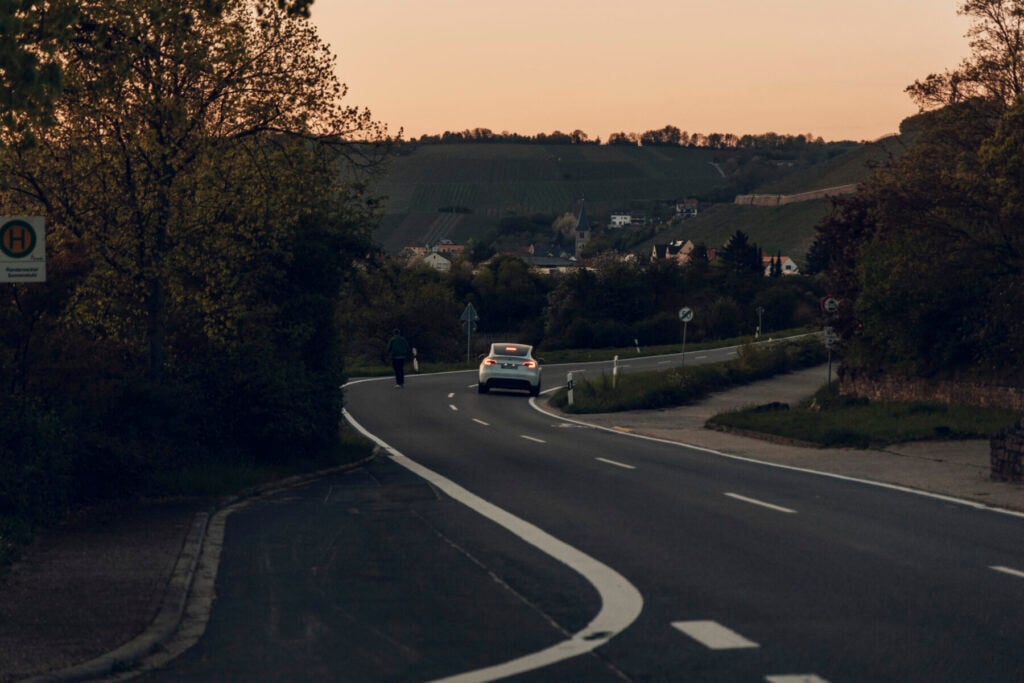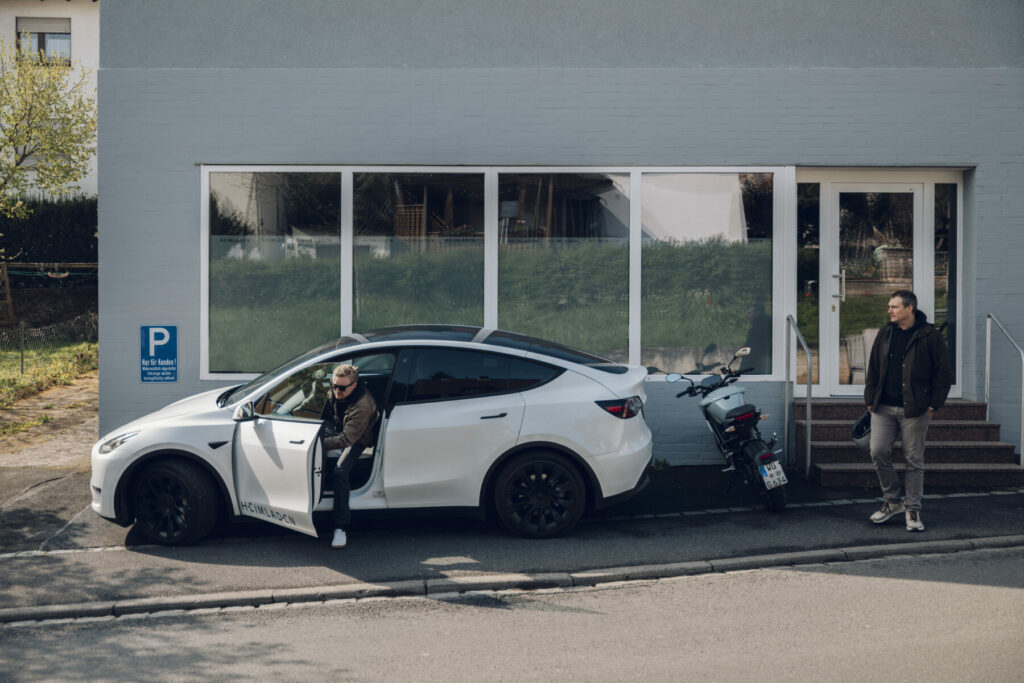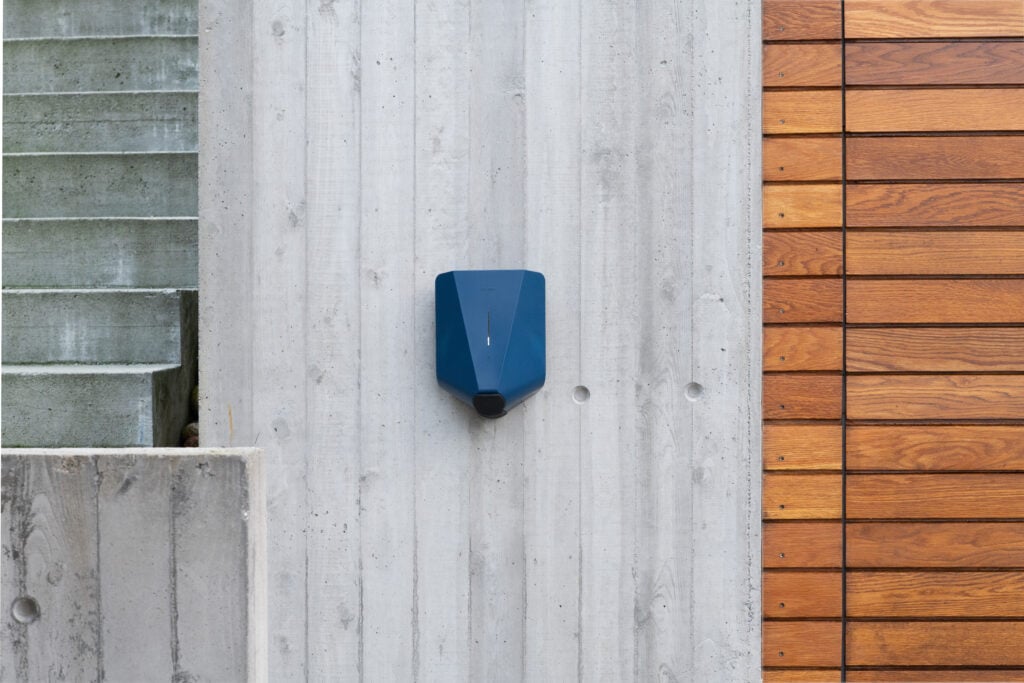Making home charging as easy as getting WIFI
In a country which is known for wine queens, generous speed limits and a wide range of industries, a green revolution is underway.
In an effort to reduce CO2 emissions and address climate challenges, the German Federal Government has set the goal to move most, if not all, electrical infrastructure to renewable energy by 2030. Within the same time frame, Germany also aims to remove the majority of its combustion engine cars from the road. Since 2020, the German authorities have been supporting the transition with generous incentives and subsidies for drivers when they choose to move to electric vehicles.

At the same time as more and more residents have acquired electric cars, interest in home charging has naturally also increased – and this is not always as easy to get in place, according to electric car enthusiast and founder of HEIMLADEN, Max Wojtynia.
Charged publicly for a year and a half
Max lives in Randersacker, an idyllic village with cobblestones, inns and six wineries. In his courtyard, five charging robots are lined up, surrounded by vines and green areas in all directions.
– When my wife and I had a son and went from being a couple to becoming a family, we needed a new car, and for me it was obvious to choose electric. We ended up ordering a Tesla Model 3 – a fantastic car that served us well.

For the first 18 months, Max charged exclusively at public charging stations on the way to and from work. The ‘aha!’ experience when he finally got charging options at home was great.
– Everything became so much more comfortable. The security of being able to start every car trip with a full battery. Not to worry about the nearest charging point when parking at home with 5 percent battery left.
– No one could deliver complete home charging
However, the process before the charger was in place was not smooth sailing. Max quickly discovered that there weren’t any companies in the area that had experience with home charging. He ended up doing most things himself – from planning to ordering a charging box, and explaining the rules and technical details to the electricians.
– For me it was a hobby project, it was just fun. At the same time, I noticed that it would not be a sustainable process for millions of other people out there. The entrepreneur in me finally had something to base a start-up on.

– Should be as easy as ordering and installing internet
To grow from start-up idea into a full-on company, Max brought on board COO Niklas Slatin and CTO Christian Arians and Heimladen was born. With the combined knowledge and expertise, the team have set their mission to make buying and installing home EV charging as simple as setting up broadband Internet.
– Studies show that more electric cars are sold where there is access to public charging points. We want the same logic will apply to home charging. When we make it easier for people to get this in place in both private homes and apartment complexes, it will have a big impact on how fast people jump on electric vehicles.

When a customer calls and wants electric car charging in place, HEIMLADEN takes care of the entire process until the charging cable can be plugged in. The network of electrical installers and other partners is constantly growing, while the charger remains the same.
– I immediately fell for the “plug and play” concept with Easee, and how simple the whole installation process became. The feedback from all the electricians we work with is the same: they love Easee products.
Skepticism of electric cars must be counteracted
One of the bottlenecks in electric car development is that people are still skeptical about whether they can compete with ordinary diesel and petrol cars. This is mainly due to a lack of knowledge, Max believes.
– We try to pull our share of the load here. When people see how easy it is for their neighbours to charge the electric car at home, they become curious and interested, but are still skeptical about how the vehicles are used. My experience is that all that is needed is to place a person in an electric car, and they will be convinced. People are surprised and impressed both by how little noise it makes and how good it is to drive.
Max thinks it’s only a matter of time before electric cars are normal in Germany.
– It requires that we spread knowledge so that skepticism disappears, but I hope and believe electric vehicles are the standard in five to ten years. It must become common sense to buy an electric car – even on the day the subsidies disappear.
– I can’t wait until the day everyone realises that gasoline is no longer fun.








